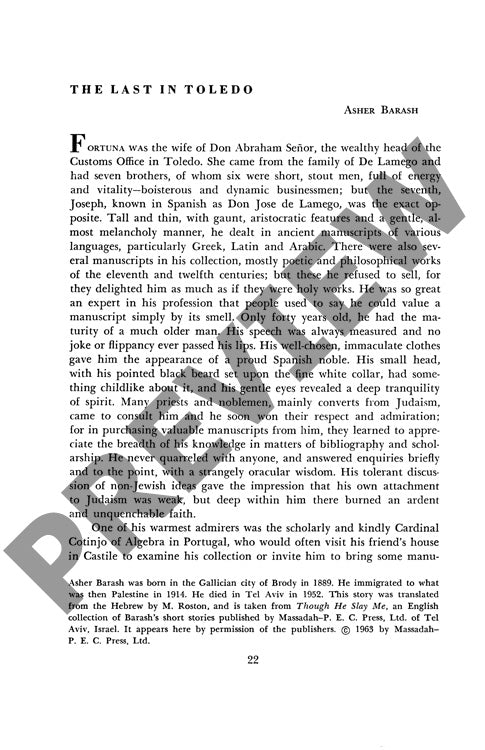The Last in Toledo
Couldn't load pickup availability
In 1492 Toledo, as the last Jewish exile ship departed Spain, one man remained behind. Don Jose de Lamego, a scholarly manuscript dealer, transformed from respected bibliophile to perceived madman in Asher Barash's haunting short story "The Last in Toledo." Clinging to his mantra "I shall not die, but live," Don Jose's psychological deterioration masks a profound act of spiritual resistance against the Spanish Expulsion. Literary analysis of character development, symbolism, and historical context reveals how Barash weaves Don Jose's manuscript obsession and apparent madness into potent metaphors for cultural preservation and religious defiance. The protagonist's fractured mental state emerges as both personal trauma and vessel of collective Jewish memory, while his compulsive gathering of written materials symbolizes the preservation of Jewish intellectual heritage in the face of physical persecution. Through Don Jose's solitary vigil in Toledo, Barash crafts both historical testimony and meditation on survival, demonstrating how individual psychological responses to persecution can embody broader patterns of cultural continuity and spiritual resistance in Jewish diaspora literature.

More Information
-
Physical Description
-
Publication Information
Published 1965
ISBN
-
Publication Credits
Asher Barash

